A look at what a dietitian thinks the Netflix documentary The Magic Pill gets (at least kinda) right about the keto diet and your health.
The new Netflix documentary The Magic Pill weighs in on the controversial keto diet by exploring how a shift towards a low-carb high-fat diet can improve our health. The film follows the lived-experiences of people suffering from a variety of illnesses who adopt a ketogenic diet and see immediate improvement in their symptoms within a few weeks. The Magic Pill’s testimonials suggest that a keto diet may be beneficial for weight loss, neurological disorders, and various chronic diseases. We took a look at the literature to find out what The Magic Pill gets right about the keto diet and then in part two of this post you will see what I think the Magic Pill gets wrong about the keto diet.
What Netflix’s The Magic Pill Gets (at Least Kinda) Right About the Keto Diet
Let’s get into it.
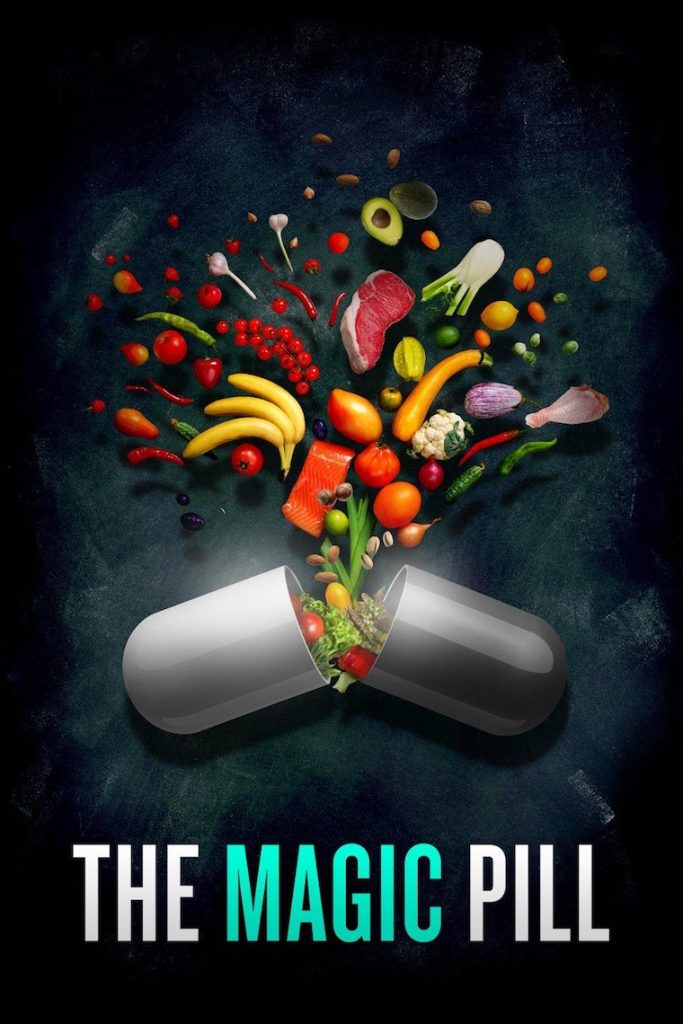
Claim #1: Keto diet treats childhood epilepsy
At the beginning of the documentary we meet a young girl named Abigail who is autistic, epileptic and non verbal. In an attempt to improve symptoms, Abigail is put on a keto diet. After five weeks, she’s calmer, her bowels have normalized, her speech as improved and her seizures have decreased. Pretty impressive if you ask me.
What the Research Says
The keto diet isn’t new to the medical community. For a long time now (more than 80 years), the keto diet has been used in the treatment of epilepsy. A systematic review found that a keto diet MAY be beneficial in children with epilepsy. I say “MAY” because this wasn’t the case in all children with epilepsy and obviously more research needs to be done to find out whether there are any long term risks associated with the diet.
Bottom Line: A keto diet has been shown to be effective at reducing seizures, however it’s recommended that children be monitored by a health professional while following a keto diet.

Claim #2: Keto diet treats autism
Next up we meet Aaron. Aaron is a young boy on the autism spectrum but after six months of being on a keto diet, Aaron is able to express himself and use full sentences. The documentary demonstrates that the keto diet helped Aaron to increase socialization, independence, self-care skills and decreased repetitive movements and behaviours.
What the Research Says
A recent systematic review showed that behavioural symptoms in children with autism improved after a keto diet. Other diets have also been shown to improve symptoms including the Atkins diet, Casein-free diet and gluten free diet.
Bottom Line: A keto diet may be beneficial in managing behavioural symptoms in children with autism. Again, it’s imperative that these children are followed by a health care professional when following the keto diet for therapeutic purposes (or really, any time).

Claim #3: High fat diets don’t cause heart disease
Fat is a controversial topic and this documentary challenges the theory that a high fat diet causes heart disease. The documentary explores the serious flaws behind infamous fat research that have been conducted in the past.
What the Research Says
Contrary to past research, current research suggests that there is a lack of evidence that proves that total dietary fat causes heart disease. The doc makes the argument that a low fat diet can actually do more harm than good, which I agree with since the majority of foods marketed as “low fat” are highly processed and packed with sugar and salt to make up for the lack of fat. I am a huge fan of fat. Many of my fave foods that high in fat and carry plenty of heart healthy benefits (hello avocado bruschetta!!). So while I believe that we can have a more modest and balanced diet in general, that includes fat and carbs, I think I agree that going fat-free isn’t the optimal diet anymore.
Bottom Line: Little research exists that proves that a high fat diet causes heart disease, so don’t be afraid of fat because they carry plenty of heart healthy benefits. However, as always, all things in moderation.

Claim #4: Keto diet cures diabetes
In the documentary, we meet a patient who is able to decrease her insulin in half and eventually get off insulin altogether after being on a keto diet. Here’s what they got right: a keto diet may help you manager your blood sugars. Here’s what they got wrong: a keto diet doesn’t CURE the chronic disease.
What Does the Research Say
The research says that a short term low carb diet may help to lower blood sugar levels, however in the long term those same effects were NOT seen.
Bottom Line: A keto diet may improve the management of type 2 diabetes in the short term, however whether it can lead to a patient ditching their insulin is still unclear. Either ways, I never be able to make the claim that a diet CURES diabetes, and you should never go off medication without consulting your doctor first.
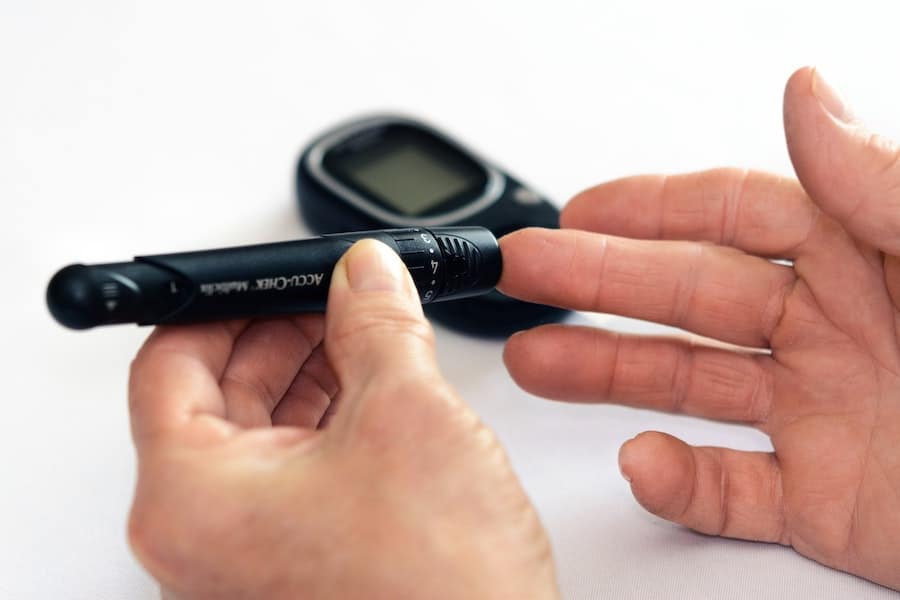
Claim #5: Keto diet causes weight loss
The keto diet has been around for a long time, but recently it’s become super trendy, not because of its ability to reduce seizure episodes but because of its potential weight loss abilities. In the documentary we meet individuals who have succeeded in losing weight after following a keto diet. Let’s remember these are isolated testimonials and take a look at the research.
What the Research Says
Like in the documentary, research does suggest that individuals tend to lose weight when following a keto diet. The literature shows that this is likely because you eat less calories due to the many restrictions of the diet and a lot of the weight lost is just water. It’s also true that a lot of the initial weight loss is water weight as you shed your glycogen stores. Another big reason may be because fat is satiating so some people find that helps them from feeling hungry. However, the big question I always ask is whether they can keep that weight off. With a highly restrictive diet like the keto diet, it may be hard to maintain in the long term, which is why very little research have shown long term results. In fact, most research shows little to no difference in weight loss comparing a keto diet to other diets of the same caloric level.
Bottom Line: Yes, the keto diet may help you lose weight, but it may not help you keep it off in the long term. The secret to weight loss is not keto, but in reality it’s finding something that you can stick to in the long run.
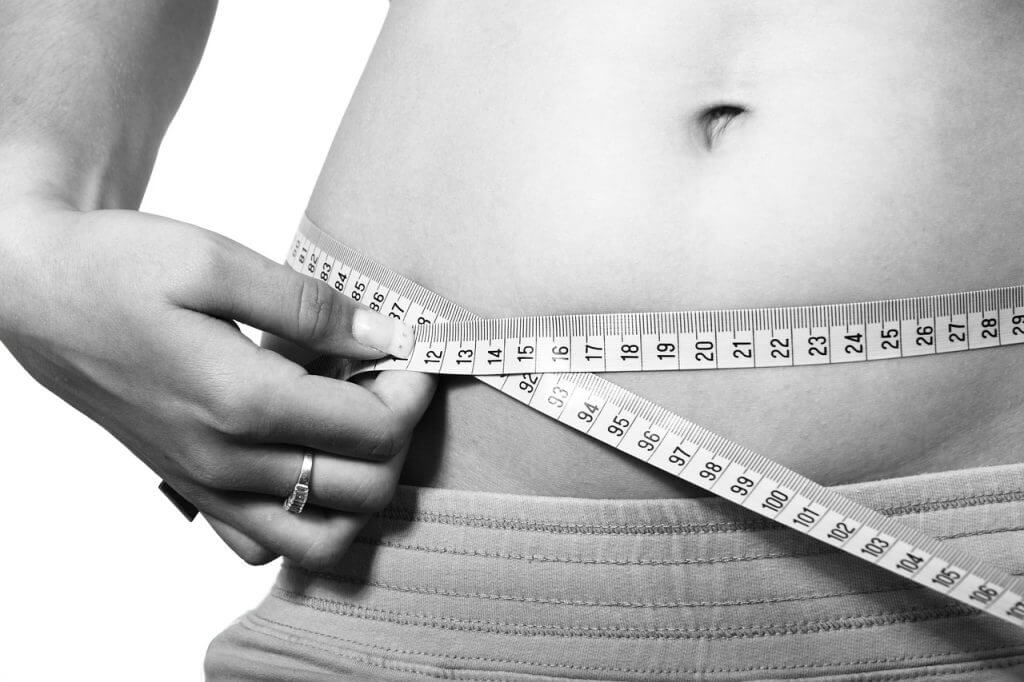
Claim #6: Keto diet cures cancer
A clip in the documentary shows a women who was able to cure her cancer using the keto diet. Much like the keto diet and diabetes, we can’t make claims that a keto diet cures cancer, however there is some exciting research where a keto diet may help in the treatment process.
What the Research Says
Not a surprise, but the majority of studies in this field are animal studies, which makes it difficult to say these effects can happen in humans. Some studies have found that a keto diet may inhibit tumour cell growth and increase survival time, however more research is needed to confirm this claim.
Bottom Line: A keto diet may be an effective form of cancer therapy paired with other treatments, however NO research has found that a keto diet can single handedly cure cancer. Making a claim that a diet can cure cancer is very dangerous and I am in no way advocating that people stop taking their medication or doing therapy and take on the keto diet instead.
All in all, the documentary makes claims about the keto diet that carry some research and evidence, but a lot of the time, this research is largely exaggerated to make their point. One thing we don’t know is the long term impact of a keto diet and there’s still a long way to go before we can call it the “Magic Pill”. I do think that the keto diet has its merits, especially in clinical settings, but it’s not without its risks and it may not be right for you. Not to sound like a broken record, but a healthy diet is one you can maintain in the long run and it’s up to you to find what works for YOU and not just the what works for the people in this film.
Be sure to come back next week to learn about what I think The Magic Pill got just PLAIN WRONG.
Until then, tell me, what do you think of the Magic Pill?
What are your general thoughts or experiences with the keto diet?
Leave me a comment below!
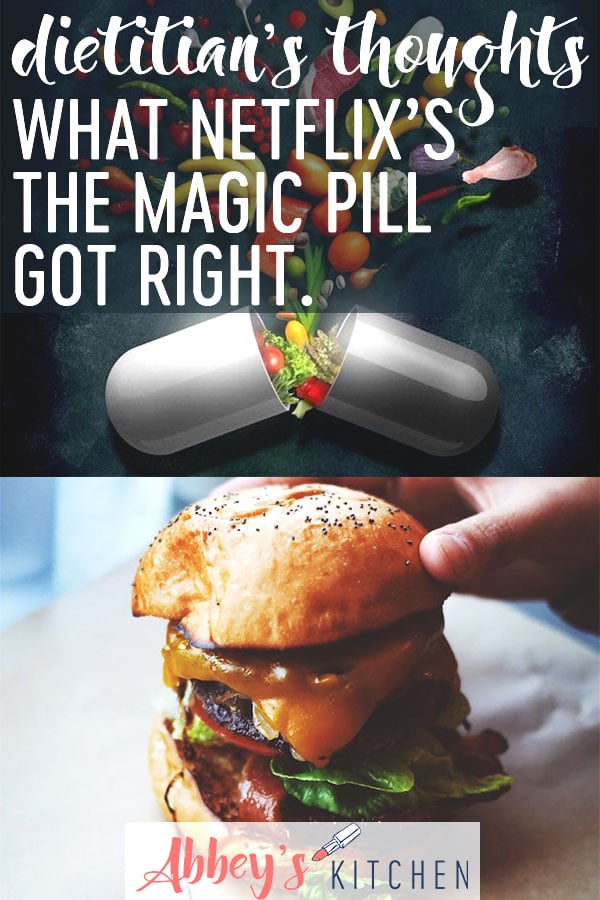
Contribution By RD2B:
Giselle Segovia
Edited By: Sofia Tsalamlal

Abbey Sharp is a Registered Dietitian (RD), regulated by the Ontario College of Dietitians. She is a mom, YouTuber, Blogger, award winning cookbook author, media coach specializing in food and nutrition influencers, and a frequent contributor to national publications like Healthline and on national broadcast TV shows.


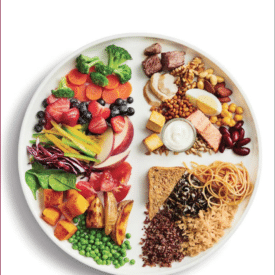

Dana says
Wow, a few hours after being notified of breast cancer, I have googled cancer and sugar. The day after I decided to go Keto. I can not stress enough the influence of that decision on my healing and dealing with treatments. As opposed to the doctor’s opinions, I was followed by a nutritionist (Sigal Miara) that I believed in. She said to do keto even during Chemo, while others suggested I go eat a chocolate Croissant (which I loveeeeee). I barely felt any symptoms, my body was strong and happy, I have traveled with friends abroad during Chemo treatments, and even got Covid during travel but recovered within 1 day. I feel amazing and I know that keto was and is the right choice (for me) and I encourage others to look into it. I am not saying to skip western medicine because we do not have enough evidence to allow us to take the risk. But from my experience, the right nutrition is our natural path to healing or at least healing related critical assistance. It may be that where a disease exists, it is right to take medicine proven to heal. That is what I have done. But not less important is to prevent re-occurance. And nutrition may be the answer for that. Further, I hear about cases where the same Chemo treatment as mine has caused much suffering and even stopped in the middle. How was I different? There could be many factors, but I would bet mostly on Keto. Am happy to discuss with anyone this into can help. Most importantly, one has to decide its own path and believe in oneself.
Stephen Barlow says
Definitely something I would like to try after watching this powerful and convincing documentary.
Kristi Leigh says
I am having great fat loss success on a “Keto” diet. The magic pill made me think about the many generations of my family that did not suffer obesity and what I did differently. I’ve taken up gardening, Eat most of my calories from fat and protein. Limited complex carbs but a variety. My family came from Norway, above the arctic circle and I am learning that their diet was somewhat Keto. Fish, goat, lamb, cheese and coming lex carbs. It works for me. It has not worked nearly as well for my husband. No ONE magic pill for everyone but sure kinda hope I can blend a Keto type with Mediterranean type once I enter a maintenance plan.
Abbey Sharp says
Hey Kristi, glad to hear the diet is working for you. Thanks for your comment
Julie @ Running in a Skirt says
Keto diet is fascinating that this sounds like a really interesting program. Good to know that not all the claims are based in fact though. I seriously love carbs too much to go there!
Abbey Sharp says
Right! Same.
Jessica Levinson says
Thanks for the breakdown on this documentary. Can’t wait to hear your thoughts in the second part of your post.
Abbey Sharp says
Yes! Thanks love
dixya @food, pleasure, and health says
i havent seen the documentary yet but I am with you on some of the claims you mentioned…but the verdict is still out there on the long term effects on these diets.
Abbey Sharp says
Yep, totally agree
Kelly says
I agree with all of your points, but I haven’t seen the movie yet. Will have to watch before next week’s post!
Abbey Sharp says
Yes! Great idea!
Sarah says
Thank you for sharing. I haven’t watched this and am not big into keto due to the high protein (meat) aspect but do like higher fat diets although my health doesn’t and I love my carbs too much.
I’ll have to add this to my list of things to watch!
Abbey Sharp says
haha carbs are LIFE. Thanks Sarah
Deborah Brooks says
Thanks for breaking this down in such a comprehensive way. I will have to look out for the movie on Netflix and give it a watch
Abbey Sharp says
Yes, please do!
Farrah says
I haven’t yet watched this but it does sound interesting–I liked reading your thoughts on it! I’ve had patients with epilepsy who were on keto diets, and for some of em’, it really does seem to work, like you said, not so much with others.
Abbey Sharp says
Yeah, it definitely has its benefits for some things
Leslie says
Abbey, you say “One thing we don’t know is the long term impact of a keto diet” but we actually do as this is the classic hunter-gatherer diet, with 10,000 years of long term impact before we became agrarian. Just saying.